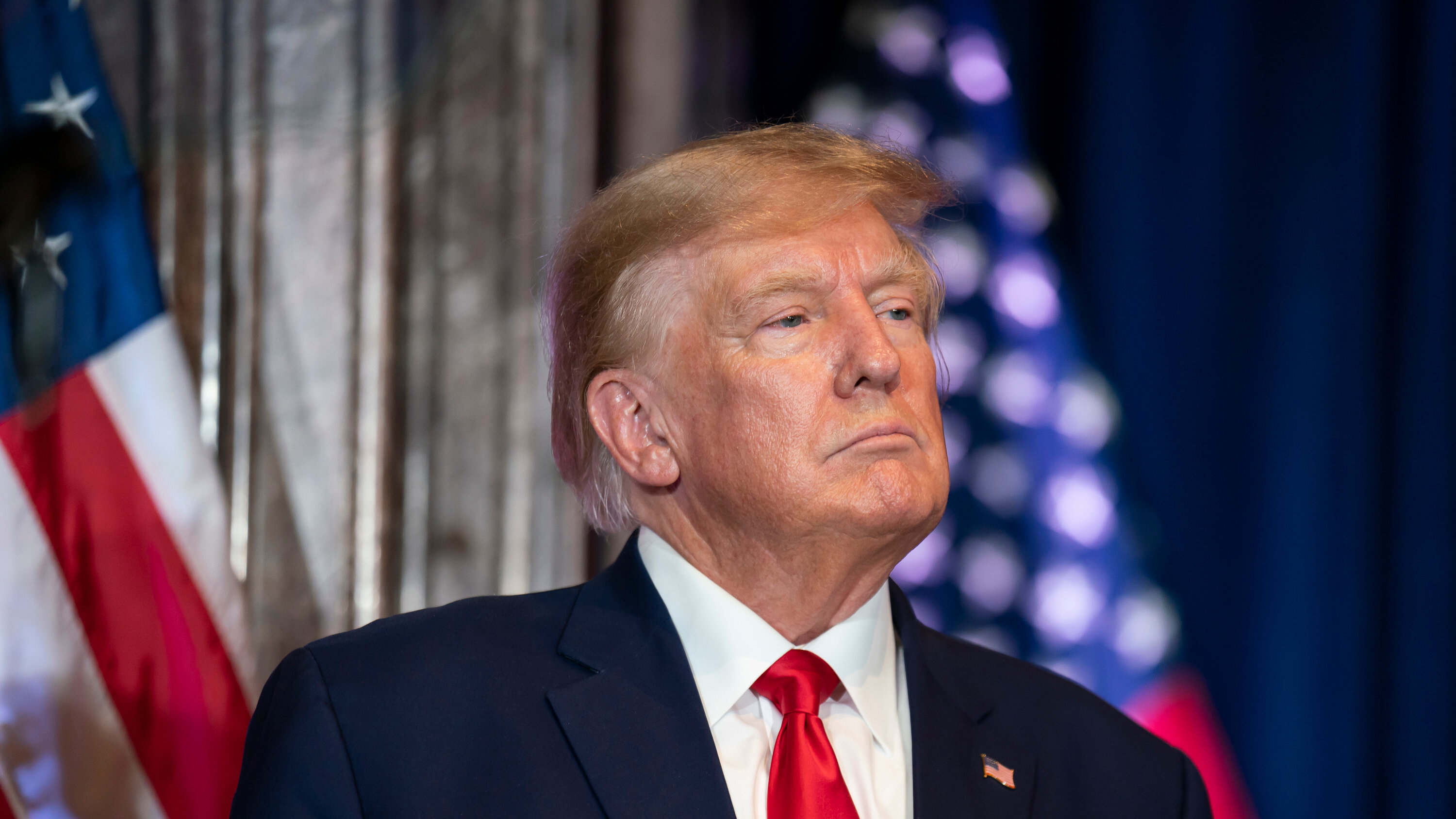In the realm of political discourse, few figures have stirred as much controversy and intrigue as former President Donald Trump. His presidency was marked by a plethora of newsworthy moments, but in recent discussions, a peculiar topic has emerged: why is Trump incontinent? This question has sparked curiosity and concern among his supporters and critics alike. As we delve into this subject, we aim to separate fact from fiction, exploring the implications of this condition and its potential influence on his public persona.
Incontinence, a condition that affects many individuals irrespective of age or gender, has become a focal point in discussions surrounding Trump's health and well-being. While it may seem trivial to some, understanding the ramifications of incontinence can shed light on the challenges faced by public figures and the impact of personal health on their professional lives. In this article, we will explore various aspects of this condition, including its potential causes, its effects on Trump's life, and the broader implications for his supporters.
As we examine why Trump is incontinent, we will also consider the importance of health transparency for public figures. How does the public's perception of a leader change when faced with personal health challenges? This inquiry extends beyond Trump, touching on the health issues faced by politicians and how they navigate their personal lives under the scrutiny of the public eye. Through this exploration, we hope to foster a greater understanding of the intersection between health, politics, and public perception.
What is Incontinence?
Incontinence refers to the involuntary loss of bladder or bowel control, which can lead to unexpected leaks and other challenges. This condition can significantly impact an individual's quality of life, leading to feelings of embarrassment and isolation. There are various types of incontinence, including:
- Urinary Incontinence: The inability to control urination.
- Fecal Incontinence: The inability to control bowel movements.
- Mixed Incontinence: A combination of both urinary and fecal incontinence.
What Are the Causes of Incontinence?
Many factors can contribute to the onset of incontinence, including:
- Aging: As individuals age, muscle strength and coordination may decline.
- Medical Conditions: Conditions such as diabetes, multiple sclerosis, and Parkinson's disease can impact bladder control.
- Surgery: Certain surgeries, especially those involving the prostate or pelvic region, can lead to incontinence.
- Medications: Some drugs may have side effects that influence bladder control.
Why is Trump incontinent?
While there has been speculation regarding Trump's incontinence, it is essential to consider the available information and separate rumors from verified facts. Trump's health has been the subject of scrutiny throughout his career, with various reports suggesting that he may face health challenges. However, specific details regarding incontinence remain largely unconfirmed. The connection between age, health, and incontinence is significant, and it is possible that Trump's age plays a role in any issues he may face.
What Does Trump's Health History Reveal?
To better understand the context of Trump's incontinence, it's beneficial to look at his health history and any relevant medical conditions he may have. Below is a brief overview of Trump's health as reported in various sources:
| Detail | Information |
|---|---|
| Name: | Donald John Trump |
| Date of Birth: | June 14, 1946 |
| Height: | 6 feet 3 inches |
| Weight: | Approximately 244 pounds |
| Known Health Issues: | High cholesterol, obesity |
| Prescriptions: | Cholesterol medication |
How Does Incontinence Affect Trump's Public Image?
The question of why Trump is incontinent ties closely to how such a condition could influence his public image. Incontinence can carry a stigma, and public figures may feel pressure to conceal such personal health matters. For Trump, whose persona is often characterized by bravado and confidence, any admission of personal vulnerability could potentially alter public perception. The implications of incontinence may lead to questions about his fitness for office or his ability to perform in demanding situations.
What Are the Broader Implications for Public Figures?
Incontinence is not an issue exclusive to Trump; many public figures face health challenges that they must navigate under public scrutiny. The perception of leaders grappling with personal health issues can vary widely, impacting their political careers and public support. Transparency and openness about health can build trust with constituents, while secrecy may lead to speculation and distrust.
What Can Be Done About Incontinence?
For individuals struggling with incontinence, there are various treatment options available, including:
- Pelvic Floor Exercises: Strengthening the pelvic muscles can improve bladder control.
- Medications: Certain medications can help manage symptoms.
- Behavioral Therapies: Techniques such as bladder training can be effective.
- Surgery: In severe cases, surgical options may be considered.
Should Trump Address His Incontinence Publicly?
As discussions about why Trump is incontinent continue, the question of whether he should address it publicly becomes relevant. Transparency about health issues can foster public trust, but it also carries risks. Trump may choose to maintain his privacy regarding this matter, which is his right as an individual. However, discussing such issues could contribute to breaking the stigma surrounding incontinence and encourage others facing similar challenges to seek help.
Conclusion: What Lies Ahead for Trump?
The question of why Trump is incontinent opens a broader dialogue about health, aging, and public perception. As we continue to navigate the complexities of his public persona, understanding the nuances of health issues can help cultivate empathy and awareness. Whether or not Trump chooses to address his incontinence, the implications of such a condition will undoubtedly linger in the minds of the public and impact discussions surrounding his leadership and legacy.


